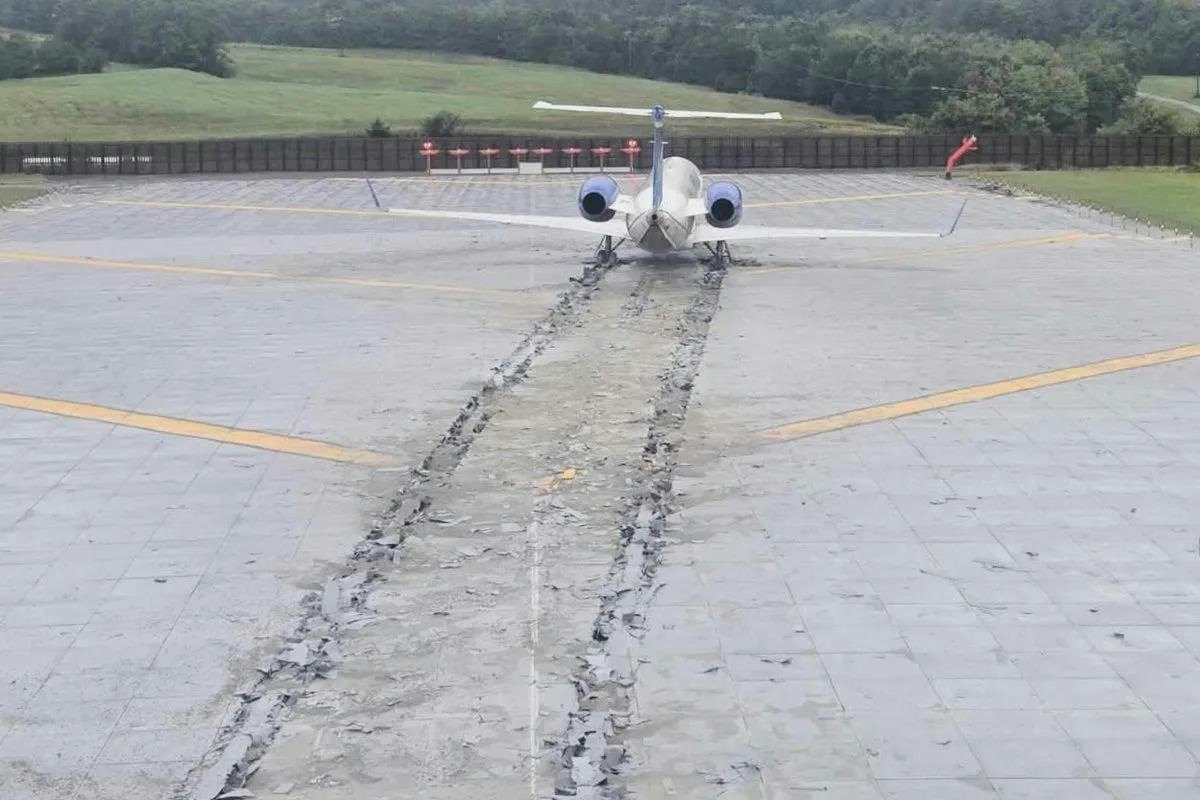AeroGenie — Your Intelligent Copilot.
Trending
Categories
Jet Diverts to Birmingham After Engine Failure Shortly After Takeoff from Cardiff

Jet Diverts to Birmingham Following Bird Strike Shortly After Takeoff from Cardiff
A Tui Boeing 737 en route from Cardiff to Cyprus was compelled to divert to Birmingham Airport after experiencing a bird strike shortly after departure. The incident occurred around 16:30 BST and caused considerable alarm among passengers, underscoring the persistent challenges airlines face in managing in-flight emergencies.
Passenger Accounts and Flight Response
Among those on board was Dave Preece, 56, from Tycroes, Carmarthenshire, who described the unsettling moments following takeoff. He recounted feeling a vibration and hearing a rumble from the left side of the aircraft, accompanied by a burning smell. As the plane circled Swansea Bay at approximately 3,000 feet, passengers exchanged anxious glances amid a tense silence. The aircraft then ascended and altered course toward the West Midlands. The captain subsequently informed passengers of an engine failure and announced the decision to divert to Birmingham.
The aircraft conducted a series of fuel-burning orbits before safely landing at Birmingham Airport around 17:30. Emergency services, including four fire appliances, were deployed on the runway, briefly delaying disembarkation. All passengers and crew left the aircraft without injury.
Official Statements and Industry Context
Tui later clarified that the aircraft did not suffer an engine failure. A company spokesperson confirmed that the diversion was a precautionary measure following a bird strike shortly after takeoff. Cardiff Airport also affirmed the incident, emphasizing that passenger safety remained the paramount concern.
This event highlights the operational complexities airlines confront when responding to unexpected in-flight issues. Emergency diversions not only disrupt travel plans but also pose logistical challenges and invite scrutiny regarding aircraft reliability. The aviation sector has witnessed several similar incidents in recent months, including a Bombardier Global 7500 forced to divert after engine failure shortly after departure, a Delta flight returning to Amsterdam due to a mechanical concern, and a Swiss International Air Lines flight aborting takeoff in Boston after flames were observed from its engines. Concurrently, Air New Zealand continues to address widespread engine problems affecting Pratt & Whitney GTF and Rolls-Royce Trent 1000 engines, resulting in significant aircraft groundings.
In response to these challenges, airlines and manufacturers have intensified maintenance and safety protocols, while market attention on engine reliability has increased. Although the Tui flight concluded without injury, the incident serves as a reminder of the inherent risks in modern air travel and the critical importance of rigorous safety procedures to protect passengers.

Emirates Unveils Cabin Design for New Boeing 777X

Eighteen Years On, the Airbus A380 Remains Central to a $34 Billion Airline

How a boom in luxury airline seats is slowing down jet deliveries

Navitaire Outage Attributed to Planned Maintenance

DigiYatra Debuts Outside Aviation at India AI Impact Summit

Vietnam Orders Strengthen Boeing’s Commercial Outlook

Airbus Signals Uncertainty Over Future A400M Orders

JobsOhio Awards $2 Million Grant to Hartzell Propeller for Innovation Center

Collins Aerospace Tests Sidekick Autonomy Software on YFQ-42A for U.S. Air Force CCA Program

How the Airbus A350-1000 Compares to the Boeing 777
